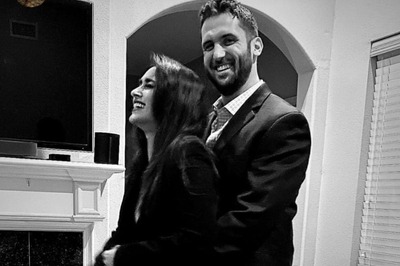
views
Cairo: Night time curfew has been imposed across Egypt as protests continue. The protesters, however, seem to be unaffected by all efforts made by the authorities to curb protests. Thousands of protestors defied the night time curfew as opposition leader ElBaradei headed the Tahrir Square protests.
President Hosni Mubarak, clinging on despite unprecedented demands for an end to his 30-year rule, met on Sunday with the military which is seen as holding the key to Egypt's future while in Cairo, protesters defied a curfew.
In a clear expression of concern, Secretary of State Hillary Clinton said the United States wanted to see "orderly transition" through free and fair elections in its key ally and the Arab world's most populous nation.
An earthquake of unrest is shaking Mubarak's authoritarian grip on Egypt and the high command's support is vital as other pillars of his ruling apparatus crumble, political analysts said as protests entered their sixth day.
"We want to see an orderly transition so that no one fills a void," Clinton told Fox News on Sunday. "We also don't want to see some takeover that would lead not to democracy but to oppression and the end of the aspirations of the Egyptian people." Amidst a heavy military presence, as many as 10,000 people protested in Cairo's Tahrir Square, a rallying point to express anger at poverty, repression, unemployment and corruption.
As the curfew started and was ignored, warplanes and helicopters flew over the square. By late afternoon more army trucks appeared in a show of military force but no one moved.
"Hosni Mubarak, Omar Suleiman, both of you are agents of the Americans," shouted protesters, referring to the appointment on Saturday of intelligence chief Suleiman as vice president, the first time Mubarak has appointed a deputy in 30 years of office.
It was the position Mubarak, 82, held before he become president and many saw the appointment as ending his son Gamal's long-predicted ambitions to take over and as an attempt to reshape the administration to placate reformists.
Mubarak held talks with Suleiman, Defense Minister Mohamed Hussein Tantawi, Chief of Staff Sami al-Anan and other senior commanders.
Clearly those in Tahrir Square did not wish to see Mubarak's ruling structure replaced by a military line-up featuring his closest cronies. "Mubarak, Mubarak, the plane awaits," they said. There was also a big protest in Alexandria.
Prominent activist Mohamed ElBaradei, a Nobel Peace Laureate for his work with the UN nuclear agency who returned to Egypt from Europe to join the protests, has been chosen to be the political opposition's representative to talk with government.
"Political groups support ElBaradei to negotiate with the regime," Essam el-Eryan of the Muslim Brotherhood, an Islamist opposition group, told Al Jazeera television.
The Muslim Brotherhood has stayed in the background although several of its senior officials have been rounded up. The government has accused it of planning to exploit the protests.
Shockwaves around Middle East
The turmoil, in which more than 100 people have died, has sent shock waves through the Middle East where other autocratic rulers may face similar challenges, and unsettled financial markets around the globe as well as Egypt's allies in the West.
The final straw seems to have been parliamentary elections in November last year, which observers said authorities rigged to exclude the opposition and secure Mubarak's ruling party a rubber-stamp parliament.




















Comments
0 comment